
CESIE is a non-governmental organisation, established in 2001, inspired by the work and theories of the Italian sociologist Danilo Dolci (1924-1997). CESIE contributes to the active participation of people, civil societies and institutions through the implementation of projects on various thematic areas, towards the promotion of growth and development, always valuing diversity in the respect of ethics and human development. Our mission is to promote growth through innovative and participative educational approaches. Our objectives: • To improve lifelong education in Europe through transnational projects involving local communities • To promote sustainable development of neighboring regions and beyond through training and education • To foster progress and innovation in Higher Education and Research • To support learning mobility for people at all ages, across borders and sectors • To stimulate local growth by adapting international good practices and methods As a European centre of Studies and Initiatives, the organisation is dedicated to the promotion of research and development so as to increase and improve future-oriented innovation processes in educational, social, economic and cultural spheres believing in the cross-cutting of organisations cooperating within heterogeneous fields and sectors.

Symplexis is a non-for-profit organisation, aiming at elevating social cohesion, serving the modern needs of populations at risk of social exclusion and promoting human rights. All activities designed and implemented by the organisation are user-centered, having a set of values as cornerstone, like impact sustainability, respect to uniqueness and tailor-made approach, user-driven design and implementation, results-based orientation and superior community ideals. Symplexis cooperates with a diversified team of highly dedicated professionals, with a track record of over 100 EU funded projects. The organisation maintains also a wide network of collaborating organisations not only in Greece but almost in all EU countries. Symplexis might be a recently established legal entity, however its people and professionals have a long track record of national and mainly international projects implemented successfully. Symplexis’ professionals have successfully supported, empowered and contributed to the integration of third country nationals in various ways and under different projects like:
- Integration of third country children into the formal education system of their recipient countries (as part of an AMIF funded project) ;
- Capacity building of professionals working with third country nationals in terms of being able to foster social entrepreneurship from third country nationals (as part of an Erasmus+ funded project);
- Supporting third country nationals trying to settle and blend in their host communities (as part of several national and international projects) ;
- Developing innovative tools and capacity building applications and games, aiming at upskilling third country nationals and facilitating their acceptance into recipient communities (as part of several EU funded projects);
- Designing and implementing outreach and awareness raising campaigns both to third country nationals, as well as to local communities (as part of several EU funded projects);
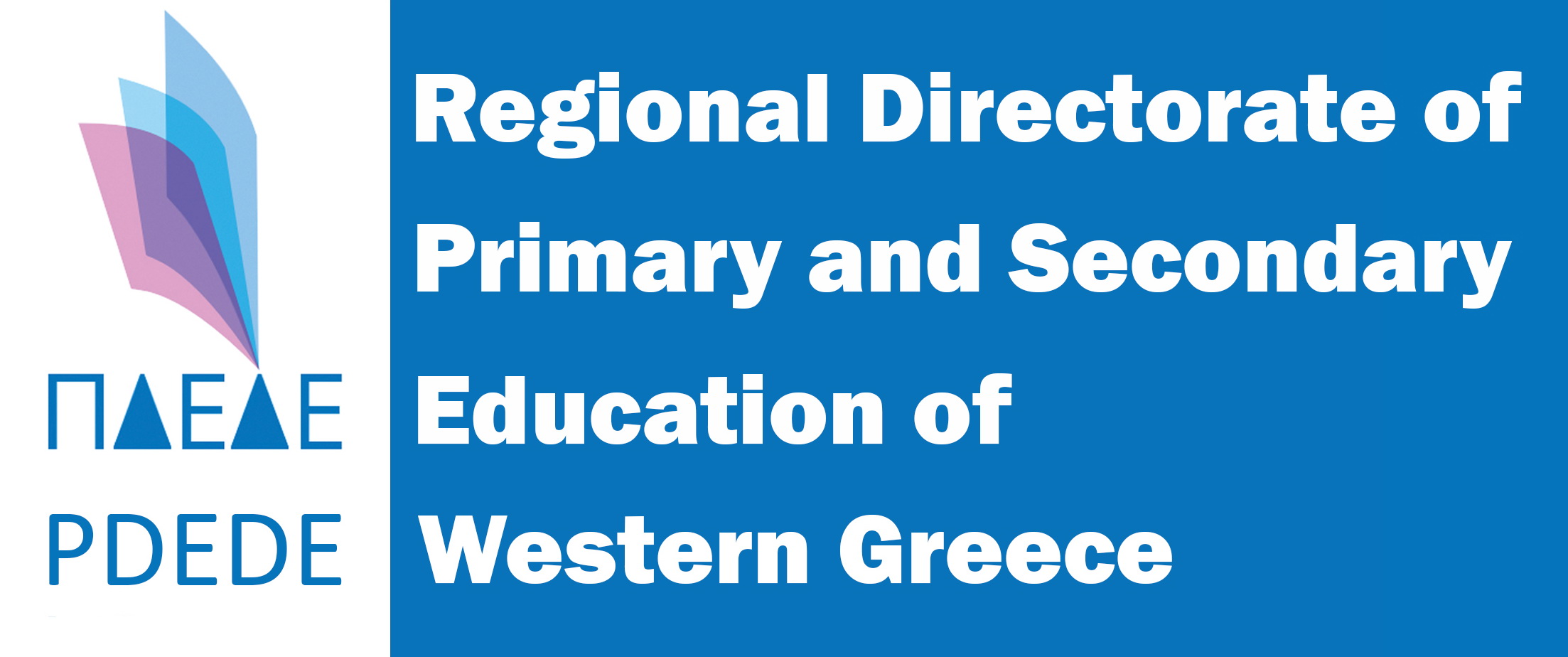
PDEDE (Regional Directorate of Primary and Secondary Education in Western Greece, PDEDE) is an education organization under the umbrella of the Greek Ministry of Education, Research and Religion. It is a decentralized structure supervising and implementing educational policy of the Greek Ministry of Education on the secondary level. Region of Western Greece has the largest geographical coverage among all Greek Regions. Among its competitive advantages are its Strategic location linking the Peloponnese with the mainland Greece and Epirus. It is regarded as the western gateway to the Adriatic Sea and Western Europe. Research Institutes of International Caliblre operate in Patras. There is also a wide range of Cultural sites and Museums including the The Archaeological Museum of Ancient Olympia, The Archaeological Museum, the Press Museum and the new Museum of Patras, The Museum and the Art Gallery Trikoupi, at Messolonghi, etc. with which we organize common educational activities. It is in charge of over 1135 schools of both levels of education -primary and secondary- and a number of more than 12.150 appointed teachers of all disciplines and 90.000 students. It is one of the largest education organizations in Greece – responsible for schools and teachers in three Prefectures, Achaia, Etoloakarnania and Ilia. Its task is to co-ordinate, supplement, back up and implement the educational policies of the Ministry, along with supervising the implementation of various education projects, like European projects, in schools.
PDEDE has rich European experience since it has supported more than 150 educational structures in the preparation stage as well as the implementation and dissemination stage as affiliated partner (duties of the eu project manager disseminator of each Regional Directorate of Education defined by Ministerial Law) since 2014, the beginning of Erasmus+. Moreover, being involved in several European Programmes and Contests such as E-Twining, Euroscola, Teachers for Europe, Pestallozzi, Juvenes Translatores it has a wide EU network which is reinforced by its active participation in EU Granted Projects.

INOVA+ is a Portuguese company specialised in supporting the growth of organisations through innovation, international cooperation and access to funding. With 20 years of experience in several European funding programmes and remarkable success in this area, INOVA+ regularly collaborates with the European Commission and other international bodies for the implementation of specialised projects and services. Acting as an enabler for the participation of other organisations in this highly competitive environment, INOVA+ position itself as a specialised service provider in the development of competitive applications and in the project implementation stage. With a presence in – Portugal, Belgium, Poland and Germany – we work alongside experienced and multidisciplinary team members, who regularly act as external evaluators and experts in different European programmes. Our experience and expertise, combined with an international network of renowned partners, allows us to embark on initiatives in the most diverse areas.
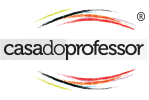
Casa do Professor (as “Teacher’s home”) is a social solidarity association, born on 14th February 1979 with public utility status since 1999. It supports teachers at all levels of education, by promoting socially oriented initiatives, scientific training, cultural and recreational activities. In pursuing these goals, it offers a very diverse range of activities and services for the benefit of about 11,000 teachers, which added the respective immediate families. The area of operation of Casa do Professor does not focus solely on associates and in their professional lives, but also extends their personal and family considerations. The association is non-profit or union, has a fully professional management, integrates about forty employees, and about a hundred partners. The association's purpose is to dignify teachers, reinforcing the nobility of their profession, which is why it seeks to streamline activities with a professional and social intervention and cultural dynamics. This is assumed with high professionalism and deep commitment, so the teacher always feels respected, cherished and happy.
Casa do Professor is the place of union for all teachers. It also has a solidarity project called "Novelos de Afetos-Meadas de Partilha” (as “wool ball of affections”), a noble project that moves the institution, to promote the success and health of underprivileged children and young people who attend public school, towards a true equality of educational opportunities for success and avoid the early dropout. This social responsibility project is anchored on a network of supportive partnerships with entities that seek to respond to needs identified by schools in terms of basic goods, education, health, culture, among others. The teacher training of Casa do Professor - the largest training centre for teachers in the country, with 20 years of uninterrupted activity, accredited by Scientific and Pedagogic Counsel of Teacher Training and General Direction of Employment and Labor Relations, aims to dignify the teachers.
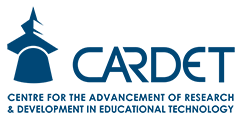
CARDET is one of the leading research and development centers in the Mediterranean region with global expertise in project design and implementation, capacity building, and e-learning. Is independently affiliated with universities and institutions from around the world, such as the Yale University, the University of Nicosia and the International Council of Educational Media. CARDET has completed numerous projects relating to the development of capacity building and planning in education and VET, youth support, adult learning, literacies, digital tools, eLearning, educational technology, and social integration of marginalized groups. One of our core-strengths is our ability to carefully plan, implement, execute and evaluate projects in various contexts.
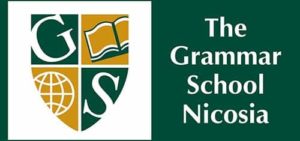
The Grammar School was founded in 1963. Our School provides challenging and diverse learning opportunities. It promotes creativity, independent thinking and empowers students to become capable, caring and active contributors to the world in which they live. The English National Curriculum and the Cypriot Ministry Greek Curriculum provide the platform for learning. Students with specific learning needs are catered for through additional support, where appropriate.
Vision: to make up an educational community of students, parents and staff where learning happens at its best. We strive to be at the cutting edge of education using innovative technologies and teaching methods to enable our students to unlock their potentials and achieve personal, social, cultural and academic growth. Responsibility: to ensure a positive, safe learning environment is created so that each pupil can reach his or her potential. We work to promote and nurture a range of skills and attributes which will support the acquisition of knowledge and understanding. We recognize the importance of developing a love and passion for learning.
Aim: to provide our students, staff and families with a happy, supportive, secure and positive environment. Our exciting and motivating 21st century curriculum encourages our students to develop into inspired, independent children with a love for learning to achieve their full potential.
Methodology: By nurturing the whole child through thought-provoking inquiry and experience, all students reach their creative, academic, physical and social potential. By providing a comprehensive and innovative approach to education we develop successful, curious, lifelong learners who are contributing members of our global community.
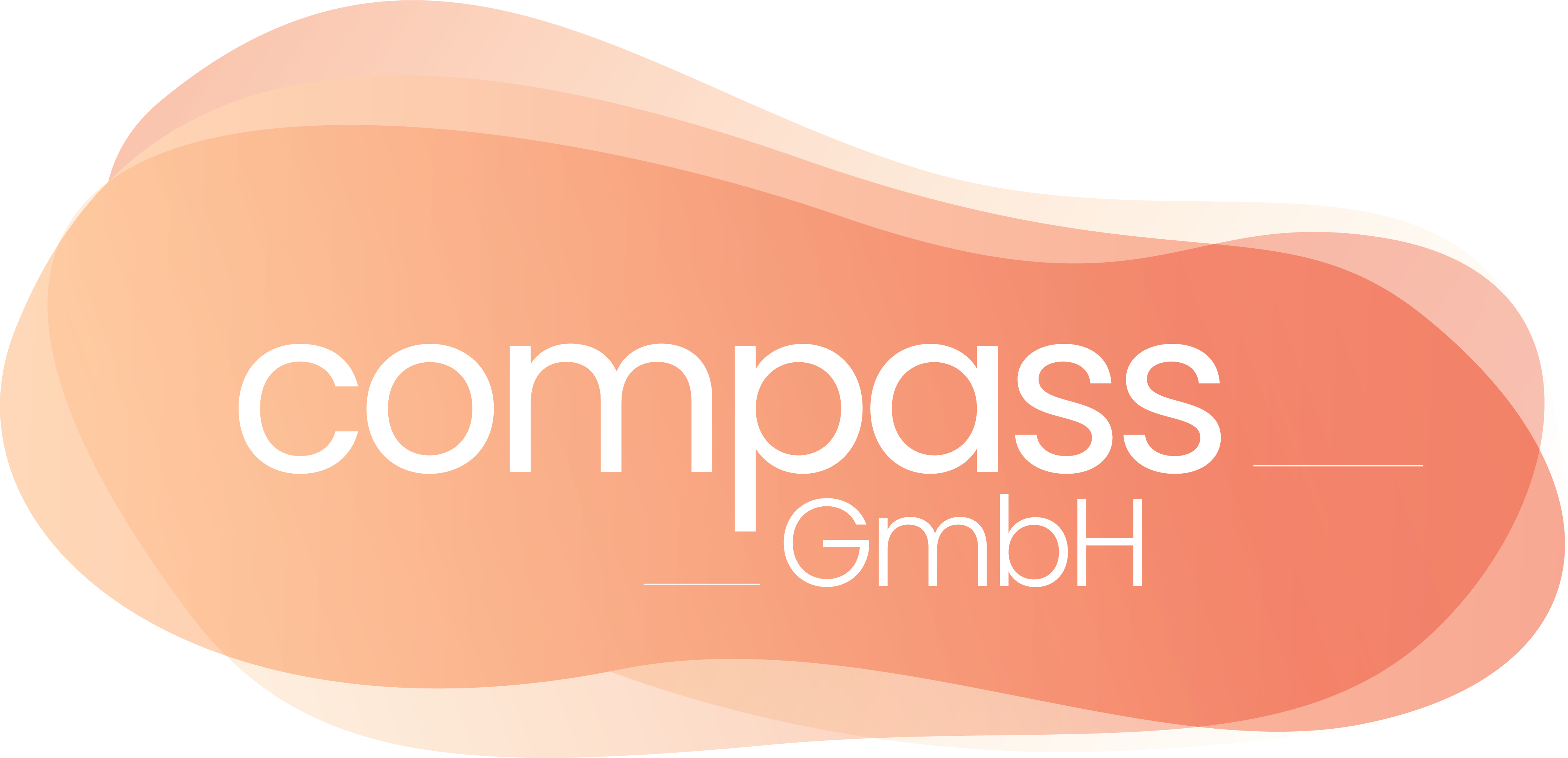
COMPASS is a non-profit private company with an intercultural focus in order to promote the professional and social integration and inclusion of migrants and refugees and create positive impact in promoting their social inclusion into the local community. Our programs provide support to people who suffer under economic, social and cultural obstacles. These services increase the employability of disadvantaged groups and ensure their educational and professional empowerment.
Our programs:
- Educational and vocational counselling,
- Language training for people with migration and refugee background
- Literacy training
- Mentoring programmes for Youth
- Socio-psychological support
- Multilingual guidance for education and career counselling for refugees and migrants
- Job application training and interview coaching
- Media workstation for young migrants (workshops in radio, film, photography & creative writing)
By developing strong cooperation with local stakeholders and implementing innovative approaches in our projects, our long-term aim is to call the society’s attention to the needs and obstacles of disadvantaged groups and to cooperate with policy makers to find preventive and permanent solutions.
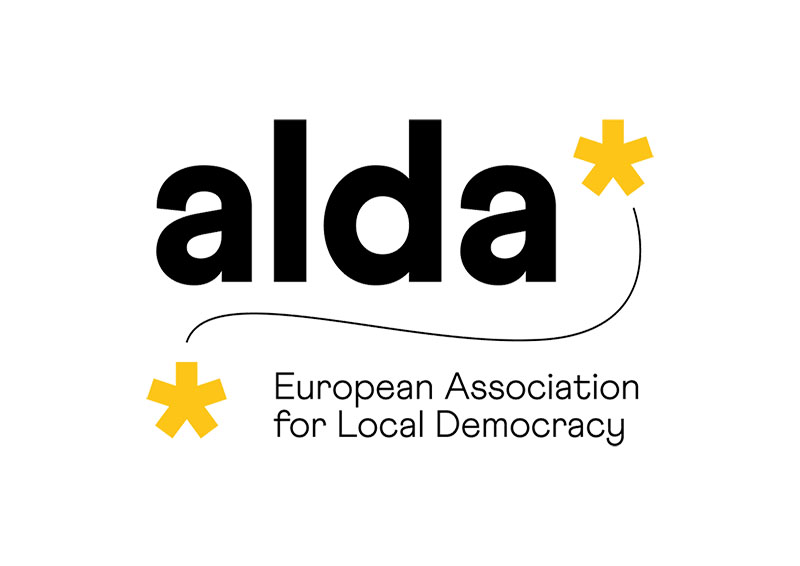
ALDA, Association of Local Democracy, is a non-profit association founded by initiative of the Congress of the Council of Europe in 1999, which main goal is the promotion of good governance and citizen participation at local level. ALDA is a membership based organisation gathering more than 290 members (including local democracy agencies, local authorities, association of local authorities, civil society organizations, universities, NGOs, grassroots associations and public bodies) based in 42 countries over most of Europe and the European Neighbourhood countries, amongst these the Balkans, Belarus, Moldova, the Caucasus area, Turkey and a few countries from the North Africa such as Morocco, Algeria, Tunisia. Since 1999 ALDA was created to coordinate and support the network of Local Democracy Agencies, which are selfsustainable, locally registered NGOs acting as promoters of good governance and local self-government. Today, ALDA is a key stakeholder in the field of local democracy, active citizenship, good governance, EU integration, human rights, and cooperation between local authorities and civil society. Most of ALDA's work is based on the method of multilateral decentralized cooperation. This method involves a multi-stakeholder approach which focuses on strong partnerships between Local Authorities and non-governmental organisations. These partnerships create positive synergy and ensure that common goals are reached in a successful way.